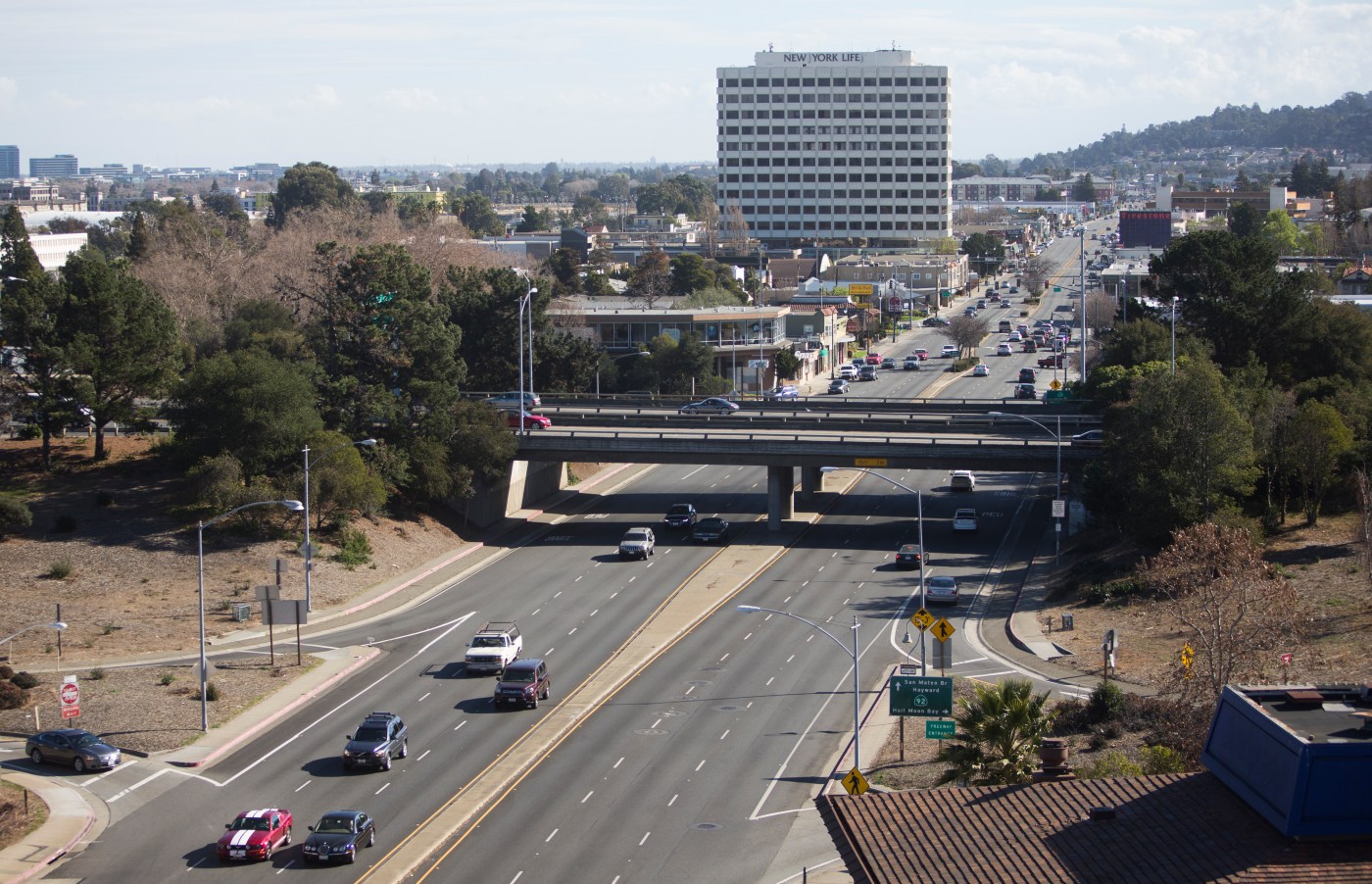
The San Mateo City Council directed staff to adopt a “compassionate approach” to enforcing its existing ban on people sleeping in vehicles, prioritizing outreach and services before issuing citations.
On Monday, during a study session, the council reached a general consensus to express their preference for guidance on enforcing the city’s existing ordinance prohibiting vehicle lodging, selecting what they thought to be the most compassionate option from several staff proposals. The guidance will be formally adopted at a later date.
Under the chosen plan, police will attempt to contact vehicle dwellers twice with shelter options before issuing a 24-hour warning. After a warning, a 45-day grace period will precede enforcement to allow for outreach and connections with the city’s homeless outreach team. Citations will primarily target individuals who decline to engage with available services.
San Mateo’s city code defines “lodging” in a vehicle as more than just being inside for an extended period of time.
According to current code, lodging is defined as when someone stores items not typically found in a regular car — like sleeping bags, cooking supplies, or personal belongings that block windows — combined with activities such as sleeping or preparing food. Essentially, if a vehicle appears to be used as a home, it falls under this definition in San Mateo.
The ordinance, which has been on the books since 1995 and was updated in 2016, also prohibits connecting RVs or similar vehicles to public utilities like water or electricity, with minor exceptions for maintenance lasting no more than eight hours within a seven-day period.
Under existing guidelines, the city’s homeless outreach team engages vehicle dwellers without issuing or threatening citations. The team estimates about 50 people sleep in vehicles in San Mateo each week.
Related Articles
SJ mayor: Legislators ‘talking out of both sides of their mouths’ for demanding progress while cutting homelessness funding
Opinion: When the unhoused are offered private space, they accept shelter
Millbrae, city with 22 homeless residents, bans encampments
San Jose approves controversial Mahan proposal to cite and arrest homeless who refuse shelter
City Council strikes down San Jose mayor’s pay-for-performance proposal
The city also plans to explore long-term solutions, including partnerships with San Mateo County on safe parking programs and installing a pump-out station for RV waste disposal. City staff will provide regular updates to the council on the program’s progress and effectiveness.
The policy comes amid broader pressure statewide to address visible homelessness.
City staff cited in its report the U.S. Supreme Court’s 2024 ruling that enforcement of anti-camping laws does not constitute cruel and unusual punishment, as well as an executive order from Gov. Gavin Newsom directing cities to prioritize encampment removal.
San Mateo’s staff report also noted increased enforcement in San Jose and San Francisco could drive more vehicle dwellers to their city.
“Over the past several months, the City has received many reports about people sleeping in vehicles in residential neighborhoods,” staff wrote in a report. “This situation creates potential public health, safety, and convenience considerations, including obstructing access to the right of way, illegal dumping, discharging waste, and violations of the city’s noise ordinance.”
According to San Mateo County’s 2024 one-day homeless count, 71% of the county’s 1,145 unhoused residents were living in vehicles. In the city of San Mateo, 95 people were counted as homeless in the same survey, including those living in vehicles, tents, or other temporary settings.
During Monday’s meeting, several members of the public urged the council to ensure enforcement efforts are done humanely and that all shelter options are exhausted before citations are issued.
“I think enforcement is important and appropriate in some cases. I do want us to take a measured approach,” said Councilmember Danielle Cwirko-Godycki. “To me, that’s much more compassionate. So I was thinking initially closer to 45 to 60 days of a notice period before we jump into issuing warnings and fining people.”
Before settling on the new strategy, the council considered two alternatives. One would have enforced the ordinance immediately without prior outreach, while the other would have maintained the status quo. Staff warned that strict enforcement could overwhelm services and make it harder for people to secure stable housing.
The city’s approach contrasts with what could be considered more punitive policies elsewhere.
In 2024, San Mateo County supervisors approved a measure allowing authorities to charge unhoused individuals who refuse shelter with a misdemeanor after three offers. Earlier this month, Millbrae banned homeless encampments, with violations carrying the possibility of jail time.
In contrast, San Mateo is leaning toward treating vehicle lodging violations as infractions, similar to traffic violations.
Deputy Mayor Adam Loraine said the policy reflects the city’s effort to balance enforcement with support services.
“It’s not a situation in which people want to find themselves. It’s expensive to live here,” he said. “It’s heartening to hear this is a continuation of the compassion the department has shown.”